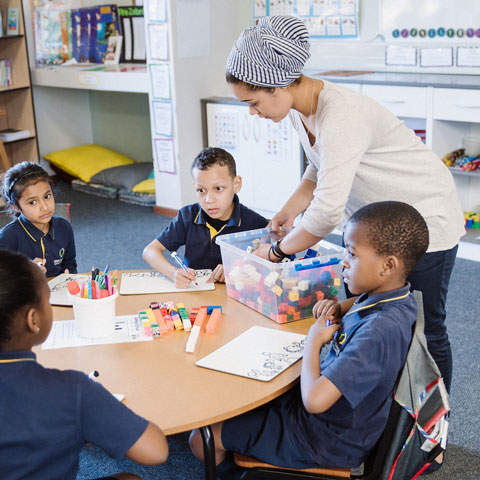Working with young people has allowed me the space to observe teenagers as they try to find their own bearings with regards to identity, friendships and values.
I recall when I was a teenager, the journey of discovering myself did not always align with the vision that my parents had for me, and at times I would find myself in a bit of trouble. I was not the exception, this is the reality with many teenagers, especially as they transition to high school.
Change can cause anxiety
It’s natural for both students and parents to feel anxious about the transition process. Teachers encounter parents who go through different experiences every term and year as new students report to school.
Surprisingly, most often than not, parents are more anxious about their child transitioning into High School than the students themselves and this feeling can be subconsciously transferred to the students and could manifest in a student feeling homesick.
Managing transitions well
Whether a student is joining a new school in the middle of the year or joining at the start of a new school year, this has an impact on both the parent and the student.
I believe parents know what is best for their children. Having said that, I would advise parents to also take the time to listen when children communicate their feelings about joining a boarding school.
Here are some few pointers that could be helpful to assist your child in easing into a boarding school
- Talk about it: Talk to your teen about how they feel, let them know that it is normal to be nervous, and other students will be feeling the same way. It might help to make a list of things they are looking forward to and the things they are worried about. Talk through any concerns and help your teen identify strategies to deal with them. It helps to also reassure them as they go through this process.
- Be Positive: If you are struggling with the idea of your teen going away, which is both normal and expected, try to stay positive and enthusiastic when speaking to them because some of these feelings will rub off on them. Teens are very perceptive when it comes to reading non-verbal cues from adults that is how they pick attitudes and learn. However, they are also very adaptable, and with support and time, most will grow to love the experiences at school.
- Get organized: Involve them in preparing for school i.e. shopping, packing, picking items that will help in their transition (which are allowed to have in school like favorite blankets, shoes, etc.). You can start by sharing more information about the school they are about to join e.g by visiting the school’s website. This will give them a sense of familiarity to the new school and answer any questions they may have about their new school. Creating memorable experiences with your child as they prepare to leave for school is also important. Encourage them to take photos of these experiences as mementos from home too – they will be more comfortable and ready to learn if they feel at home while at boarding school.
- Encourage Independence: At boarding school they will be responsible for organizing themselves and their things (perhaps for the first time). That responsibility begins at home – put them in charge of a few tasks, making the list of things they need to do such as, as making sure their clothes are labeled. Give them such responsibilities at home as well to help them get used to the idea of independence and responsibility.
- Start making plans for keeping in contact: It is normal for teens to feel homesick when they go away for school, but it does not have to affect their learning. Knowing when you will be in contact helps, so make a plan keeping in mind the open channels of communication emails, calls and visits within the school bounds. They may want to make a calendar that you can do together with them. Keep your word, when this is done.
- Encourage healthy learning habits: talk to your teen about the things they can do at boarding school to support their learning, like eating healthily, being active (participating in after school activities of their choice), balancing the two play and work, getting enough sleep.
- Prepare for tough times: this is the most ignored of these steps, as mentioned in the beginning. Almost all teenagers will encounter problems, physical changes, feelings lost in subjects/activities. These are harder signs to pick up when you don’t spend time with your teen and get to see them every day. So ‘hope for the best, prepare for the worst, and unsurprised by anything in between’ (Maya Angelou, I Know Why the Caged Bird Sings).
Being a Dorm Father at Nova Pioneer Boys Tatu Campus has been a fulfilling experience. Seeing students join the school in January and watching their transformation and excitement in joining the after school activities. I can already tell that most of our teens are well adjusted and prepared for their journey.
References:
https://www.learningpotential.gov.au/preparing-your-teen-for-boarding-school
Written by Fitch Kuri (Dorm Father, Nova Pioneer Boys’ High School)

